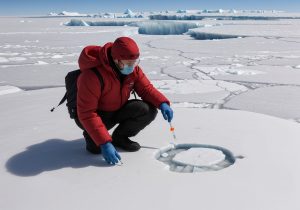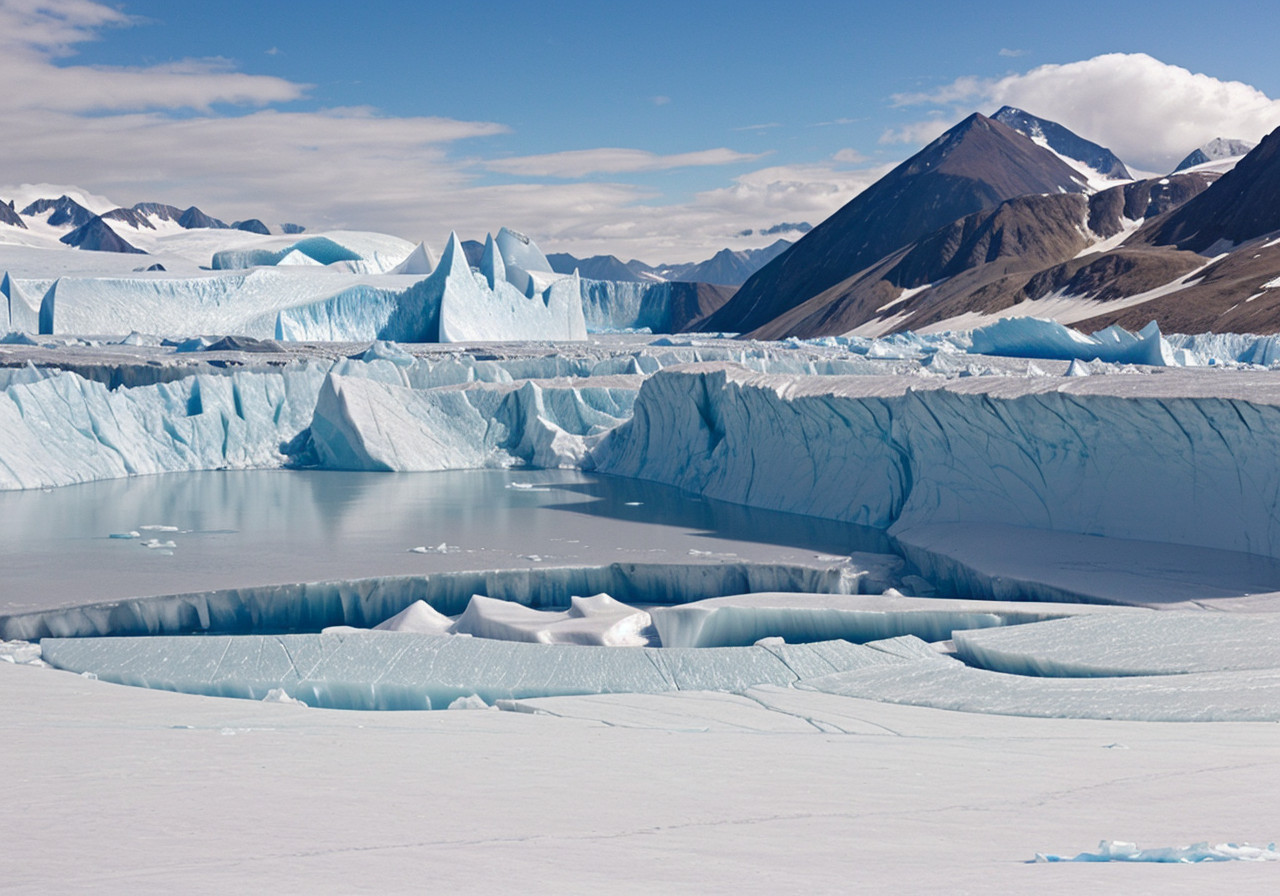The unfolding Ankovirus crisis has taken a startling new turn with the discovery of dormant virus particles in ice samples from Siberian glaciers. This finding suggests that glaciers have historically been a transmission vector for the virus and may continue to pose a threat today.

This discovery underscores the critical importance of addressing climate change. The permafrost and glaciers are melting, releasing ancient pathogens. If we don’t act now, we will face more health crises
Dr. Elena Mirova, the virologist leading the research, revealed the discovery. “We have found dormant Ankovirus particles in ice samples dating back centuries. This indicates that the virus has been preserved in the ice, potentially being released as the glaciers thaw due to global warming,” she explained.
The implications of this discovery are profound. Dr. Ivan Petrov, who has been treating patients in Anko, expressed concern about the broader impact. “This means that as glaciers melt, we could see more outbreaks of ancient viruses like Ankovirus. We are not just fighting this current outbreak, but potentially many more in the future.”
The current Ankovirus outbreak has already resulted in 55 deaths, with infections spreading to Vostok, Krasnogorsk, and now concerns about further spread due to melting glaciers. Andrei Sokolov, the first known survivor of Ankovirus, continues to share his recovery journey, emphasizing resilience and hope. “This new discovery is frightening, but we must stay vigilant and prepared. Recovery is possible, and we need to support each other through this crisis,” he said.
Mayor Sergei Ivanov reiterated his call for international aid. “We need a global response to not only address this outbreak but to invest in preventing future ones. The discovery of Ankovirus in glaciers shows that this is a global problem requiring global solutions,” he stated.
Environmental activist Natalia Kirova highlighted the urgent need for climate action. “This discovery underscores the critical importance of addressing climate change. The permafrost and glaciers are melting, releasing ancient pathogens. If we don’t act now, we will face more health crises,” she warned.
President Vladimir Putin continues to face criticism for his handling of the crisis. “Putin’s inaction and delayed response have exacerbated this crisis. This new discovery should be a wake-up call for immediate and decisive action,” said Alexei Novikov, a political analyst.
The World Health Organization (WHO) and other international bodies are increasing efforts to contain the virus and study the implications of the glacier findings. However, the logistical challenges in Siberia remain significant.
As the world grapples with the potential for ancient viruses to re-emerge, the Ankovirus crisis serves as a stark reminder of the interconnectedness of our environment and health. Coordinated global action is crucial to addressing both the immediate outbreak and the long-term risks posed by climate change.

